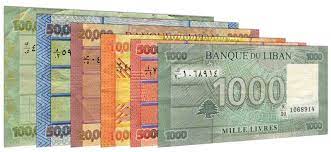
By NAJIA HOUSSARI — arabnews.com — BEIRUT: A Lebanese MP has called for action against smugglers who are worsening the economic crises by smuggling already scarce US dollars out of the country to Syria. Hadi Abu Al-Hassan said the smugglers, who are capitalizing on the weak Lebanese pound, were worsening the availability of hard currency and causing “insane” rises in exchange rates. He said that “well-known gangs buy dollars from the local market in frightening quantities and smuggle them into Syria,” and added that the official and black market exchange rates had “risen insanely and without controls” as a consequence. “The bag changers who are present at night on the road to the Al-Masnaa border point are known by name and their destination is Syria. Why do the judiciary and security services not act?
Are these money changers even licensed in the first place?” His comments came as the central bank blamed a sharp devaluation of the Lebanese pound since Christmas on currency speculation and smuggling. The bank devalued the pound to 38,000 to the dollar on Tuesday on the official Sayrafa exchange platform, after it soared to more than 47,000 pounds on the parallel market and at exchange houses.
The new official value is a sharp decline from Dec. 23, the last day of trading before Christmas, when it stood at 31,200. Riad Salameh, the bank’s governor, said that the slide “caused inflation, which harmed the Lebanese citizens.” Lebanon has previously said shortages in fuel, medicine and foods have been exacerbated by gangs smuggling to Syria. Abu Al-Hassan said that the “the same scenario is being repeated” now with currency. Dr. Nassib Ghobril, an economist, said there was an “interdependence” between Lebanon and Syria in terms of the demand for the dollar. “Merchants come to Lebanon to buy it, especially in the Bekaa region, due to its scarcity in Syria. In Lebanon, a parallel market arose as a result of the lack of liquidity in foreign currencies and the sharp decline in the flow of capital. “It is an unregulated market and no one knows how it moves in the presence of speculators who take advantage of the economic and political situation to achieve profits.”
Ghobril said that Lebanon’s import bill had “touched $18 billion, which means $18 billion has left the country, and it cannot be all in favor of the Lebanese economy. Part of it is certainly in favor of the Syrian economy.”



